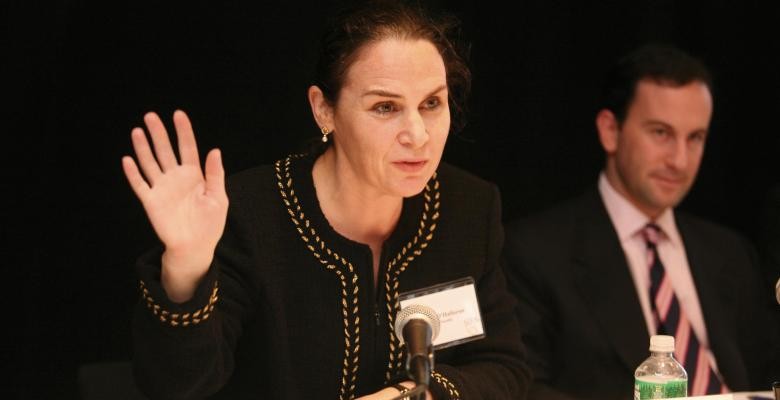The Economy Still the No. 1 Issue for Voters

It’s still the economy, stupid.
With much of the nation still recovering from the 2008 financial meltdown, the U.S. economy will be one of the top issues in the midterm elections, says Sharyn O’Halloran.
“What’s going to divide the parties is the disparity in how Americans are experiencing the aftermath of the Great Recession,” says O’Halloran, the George Blumenthal Professor of Political Economy.
While the top 3 percent of earners have returned to economic levels that haven’t been seen since 2007, all other income percentiles have either declined or remained constant in real dollars, according to recent statistics released by the U.S. Census Bureau. In addition, women, minorities and young workers, traditionally Democratic voters, have been hit hardest.
O’Halloran explains that voters have real questions about the fairness and equity of the nation’s tax structure, including the way different forms of income are taxed. For instance, capital gains are taxed at a lower rate than wages, a boon to people who are wealthy enough to have investments. In this way and others, the very wealthy can take advantage of the tax laws and loopholes to significantly lower their tax bills, a point the billionaire investor Warren Buffett has made publicly many times.
As they have in the past, Democrats will try to convince voters of the need for more robust safety nets, O’Halloran says. They’ll rally around issues like raising the minimum wage and keeping the earned income and child tax credits.
“What's going to divide the parties is the disparity in how Americans are experiencing the aftermath of the Great Recession.”
Republicans can be expected to campaign against those same issues, citing the costs of the Affordable Care Act, unemployment insurance and other benefits that they say stifle small business expansion and suppress hiring.
In a rare sign of bipartisanship, Democrats and some Republicans in Congress are seeking to craft legislation that would crack down on inversion deals, which is when a U.S. company buys a foreign company so it can relocate abroad to pay lower corporate taxes.
There are other issues in play in this election cycle, as well, including education. The Common Core, a set of math and English standards for K-12 schools set by the U.S. Department of Education, is playing an unexpectedly prominent role as parents, state governments, teacher unions and education organizations disagree on how or even whether the standards should be implemented. Initially 45 states adopted the academic standards; several states are now seeking to back out and some, like South Carolina and Oklahoma, already have.
O’Halloran points out that while education is an issue that both the Democrats and Republicans should be able to support, the debate is in the strategy for implementation. “Adopting a Common Core and increasing standards is great, but if you don’t have the staff and student population prepared to undertake that, you have a problem,” O’Halloran says.
States are grappling with whether to finance the Common Core, raise basic standards across the board, establish charter schools or encourage public/private partnerships. And even though Common Core started as a bipartisan effort to better prepare schoolchildren for college and careers, for some voters it has become an example of an overly intrusive federal government.